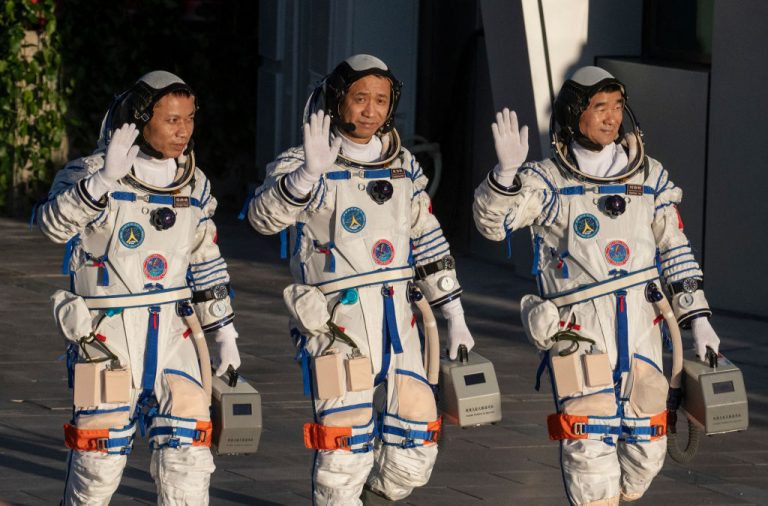After lifting off on June 17 from the Gobi desert in Inner Mongolia three Chinese astronauts — or ‘taikonauts’ as the Chinese refer to them — have successfully returned to earth after spending 90 days in orbit, some 240 miles above earth, in the Tianhe module, China’s space station.
Astronauts Nie Haisheng, Liu Boming and Tang Honbo successfully touched down in the Gobi desert at around 13:35 local time (05:35 GMT) on Friday.
The successful mission is being heralded as another demonstration of China’s growing confidence and capability in the space domain.
“Having lived and worked in orbit for 90 days, the crew has set a new record of longest space stay in a single flight for Chinese astronauts.” China’s Global Times reported.
While in orbit the crew members carried out a variety of tasks including transferring and unboxing supplies from the Tianzhou-2 cargo spacecraft as well as conducting hours-long spacewalks to verify the reliability of the craft’s smart robotic arm.
Success
You are now signed up for our newsletter
Success
Check your email to complete sign up
During their 90-day stay the astronauts completed four core missions that included testing of the Tianhe core module, assembly and testing of extravehicular suits, assembling and testing of experimental equipment and carrying out daily life care and physical exercise to maintain and evaluate their own health status.
Prior to returning home the astronauts completed a range of tasks including transmitting experiment data back to earth, sorting and transferring goods which are to remain in orbit and packing up all equipment and attaching it to the cabin of their spacecraft to avoid it causing any damage on reentry.
China has made significant strides over the past decade with its space program. In 2019, China became the first country to send a robotic rover to the far side of the moon.
China decided to develop its own space station in part because it has been excluded from the International Space Station project.
“The US, which leads that partnership with Russia, Europe, Canada and Japan, will not co-operate with China in orbit.” the BBC reported.














